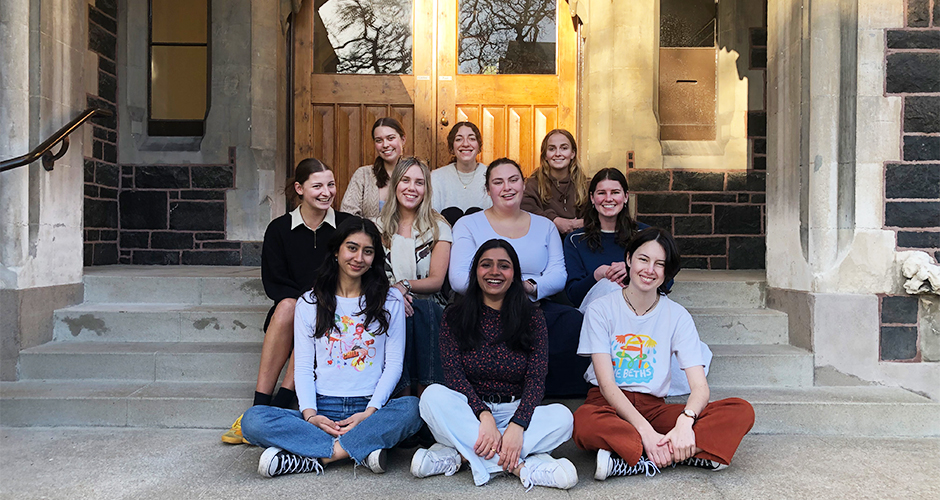
Inaugural FASA executive team.
A new student club aims to encourage positive, future-focused change in the food science and agriculture industries, and provide a place for the agricultural- and food-minded to share discussions and ideas.
The Food and Agriculture Student Association (FASA) was started this year by students from both Agricultural Innovation and Food Science, and is for any student interested in food science and production.
President Supriya Sally says everyone eats, has opinions about food and a right to say what they want or don’t want to eat.
Peoples’ ideas all come down to agriculture (how food is grown), and food science (how food is made).
The group is dedicated to exploring the food and agriculture sectors with “passion, concern and curiosity, says Supriya.
Members from the two disciplines bring together the concept of ‘farm-to-fork’ and aim to educate and inspire new members to create positive change in their local communities.
Supriya, who is in her third year of a Food Science and Entrepreneurship degree, describes FASA as a group which strives “to encourage improvements across the industry and to come together across fields to learn more about farming, food cultures, and other related issues.”
“We want to bring people together to discuss these issues in a fun space- cheese and wine and learning.”
Supriya is a mature student with a cheffing background who wants the wider public to understand that food science isn’t just about cooking or nutrition - as is commonly misunderstood.
“It fills the space between the chef and the nutritionist - food scientists make and process the food we eat every day. They do product development and quality assurance amongst many other things.”
She says that as climate change causes agricultural changes, food scientists are required even more to implement changes which will achieve the food consistency people are used to.
Vice-President Charlotte Lewis, in her third year of an Agricultural Innovation and Economics double major, says that the Agricultural Innovation degree at Otago is different to other courses because it is so focused on innovation.
“The world is changing and over-heating and our course is very focused on how we are going to adapt to those changes, how we will maintain our food yields and continue to produce food at a high standard.
“It’s very much in the sustainability realm of agriculture.”
Second year Agricultural Innovation and Environmental Management student and agriculture representative for FASA, Georgie Burdon, is “off a farm”.
FASA is a way of connecting the rural and urban divide and educating people through the ideas of food and fibre, she says.
“We are going to be the next generation who are fighting the climate crisis in these fields- literally and figuratively.
Alongside the more noble goals of promoting conversations about sustainability and climate change, the executive team are also “thrilled” to now have a place to come together and socialise - especially the Agricultural Innovation third years who are in a tiny graduating class of ten.
Phoebe McColgan, a third year Food Science and Agricultural Innovation tauira, says the Agricultural Innovation degree is “really picking up”.
There are ten in third year, 30 in second year and 60 in first year.
Charlotte says that as students of such a new degree they didn’t really feel like they had a place yet.
“We are under Food Science and we realised that there was a lot of intellectual crossover between the two courses - and a lot of differences in our areas of expertise that lead to productive conversations.”
Tamsyn, who is also “off of a farm”, is a third year Agricultural Innovation tauira who has loved that FASA has helped her to find a community on campus.
“I came to a brand new course at a university which didn’t yet have an agriculture focus- there, was no farm people around, and I wanted to find a community.
“FASA has provided that.”
For more information see: Instagram, Facebook, OUSA page.
~Kōrero by Internal Communications Adviser Alice Billington